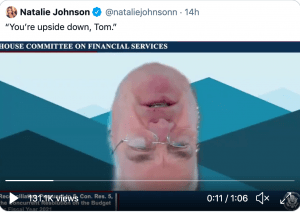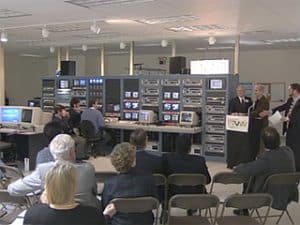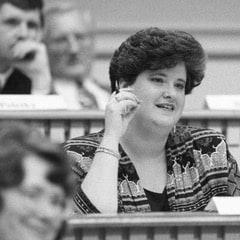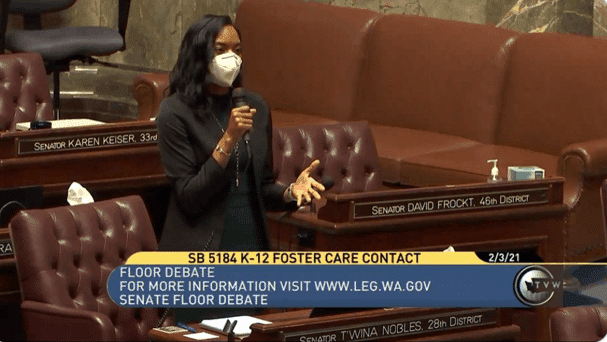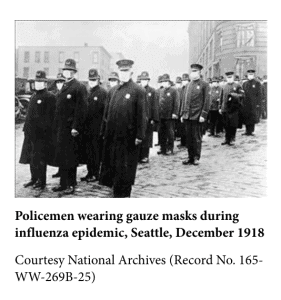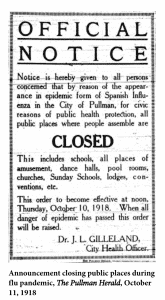The U.S. Department of Health and Human Services (HHS) is home to several federal offices that set key policies for children and families. As President Biden’s nominee for HHS Secretary, Xavier Becerra, appears before the Senate Health, Education, Labor, and Pensions Committee on February 23, we hope he will keep the needs of children and families at the forefront of the agency’s ongoing work and its efforts to rebuild and recover amidst the COVID-19 pandemic.
Families, providers, and community and state systems leaders have spent this last year learning and innovating as the pandemic forced swift action and adaptation related to key issues of access, inclusion, and equity in early care and learning. Here are the lessons we hope new HHS leadership will heed from early childhood stakeholders as they take the agency’s helm:
1. For the Centers for Medicare and Medicaid Services: Enable and scale innovations related to home-visiting and early intervention services.
HHS’s Centers for Medicare and Medicaid Services (CMS) should explore new ways to leverage federal funding streams — like Medicaid — to expand access to evidence-based home visiting programs and doula services. By making access to MIECHV supported doula services a priority, HHS has the opportunity to address disparities in maternal health outcomes, improve engagement in home visiting, and strengthen the continuum of health-supportive interventions starting prenatally. Here in Illinois, Start Early has supported legislation to expand the Medicaid program to cover evidence-based home visiting and doula services, helping to ensure families have access to these high-quality supports that keep them and their children healthy. Expanding Medicaid to cover these important interventions will allow for state-wide expansion of home visiting and doula capacity and coordination of services and supports for children and families from before birth through early childhood. Under its new leadership, we encourage CMS to continue working with Illinois and other states who are working to remove barriers that prevent low-income women from accessing home visiting and doula services, provide guidance and support to states like Illinois that are looking to expand Medicaid coverage of these services, and replicate those efforts at the federal level. This includes timely approvals of flexibilities such as the 1115 waiver which extends postpartum coverage for women on Medicaid for up to 12 months.
Since the start of the COVID-19 pandemic, CMS has issued waivers and flexibilities that support the use of telehealth among Medicare beneficiaries. This has benefitted many underserved and priority populations, including children and families in rural areas and those receiving Early Intervention services. HHS has the opportunity to ensure that telehealth remains an option for delivery of all Early Intervention services beyond the current public health emergency. We strongly encourage CMS to use this unprecedented moment as an opportunity to learn from states and local communities where continuation of Medicaid-funded telehealth might benefit kids and families.
2. For the Administration for Children and Families: Promote cross-program collaboration and funding stream innovations that strengthen the U.S.’s child care infrastructure.
HHS’s Administration for Children and Families is home to the federal Office of Child Care and Office of Head Start, two entities that are positioned to continue making great strides in strengthening our nation’s child care infrastructure.
A key lesson from the pandemic is that simply stabilizing child care is not sufficient. We must also focus on improving, strengthening and redesigning our child care system to make it more equitable and accessible and supportive of the unique needs of home-based child care providers and family choice. We urge the Office of Child Care to explore how staffed family child care networks and shared services alliances can fulfill these goals, by increasing providers’ access to technical assistance and families’ access to embedded health, mental health and family engagement services. An investment in research is also essential, to determine the effectiveness of different types of networks for increasing supply, improving quality, enhancing child outcomes and to identify effective programs that support family, friend, and neighbor caregivers to maintain safe, stimulating home environments and earn livable wages.
We also encourage the Administration for Children and Families to explore how existing federal funding streams — including the Preschool Development B-5 funds, Head Start funds, and Child Care Development Block Grant — can be leveraged to ensure providers and networks of providers can partner effectively to best serve the children and families in their communities. While the pandemic has revealed the fragility of our under-resourced child care sector, it has also illuminated the importance of providers being able to braid or layer different funding sources to provide comprehensive services to families. Strong programs braid funding from various sources in order to ensure that the families they serve have access to a comprehensive, high-quality early childhood education experience. The Administration for Children and Families should work closely with state administrators to ensure providers at the local level can partner effectively by encouraging layered funding. This would go a long way toward improving the quality of experience for families with young children by increasing the opportunities for pre-k, head start, early head start and child care partnerships. Family child care networks and shared services alliances can be one of the vehicles for building those partnerships, as can the Early Head Start Child Care Partnerships model, which helps raise the bar on what quality infant and toddler care can and should be.
3. For the Health Resources and Services Administration: Learn from families and home visitors about their COVID-related funding and flexibility needs.
HHS’s Health Resources and Services Administration is home to the Maternal, Infant, and Early Childhood Home-Visiting (MIECHV) Program. Nearly one year into the COVID-19 pandemic, home-visitors and their clients have learned a lot about the limitations of home-visiting funding sources and the additional flexibilities needed to deliver high-quality services during this time. Pending the inclusion of additional MIECHV funding in future COVID relief packages, HHS should continue to support the home visiting field and MIECHV program by offering the utmost flexibility to state grantees. Without losing sight of the goal to return to in-person home visiting when the pandemic subsides, HHS should capitalize on the opportunity to evaluate what the field has learned from the shift to virtual service delivery, from ways to creatively engage families to new sets of workforce supports. As the field works to understand the blend of service delivery strategies that will best serve families in the long-term, research should ensure key equity issues are investigated including access to and comfort with technology, and disparities in health risks and comfort with in-home services moving forward.




